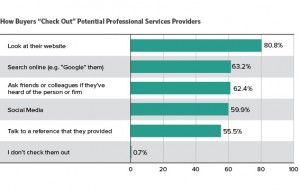Problem-solving is a key part of a leader’s toolkit. A leader has to juggle several roles, functions, and solve complex problems. The situations you deal with are also going to be varied. Because of this, you need to be able to adapt to different situations and change the techniques you use.
This is what contextual intelligence is all about.
Contextual intelligence is an aspect of emotional intelligence. It’s about constantly developing new knowledge and being aware that your environment and the actors in it are not always the same.
In a business scenario, a leader who has contextual intelligence is someone who is able to fit their actions and solutions based on the current situation. They don’t assume that they can apply the same ideas and techniques in all business problems but rather, they need to constantly gather information before making any decisions.
Why does contextual intelligence matter?
The world is more compact thanks to the internet and smartphones making us more interconnected. We need to be aware that business practices that may work in our own fields and markets may not be viable for a global audience.
When you’re more contextually aware, you’ll avoid making mistakes based on assumptions. Business literature is full of examples of companies that set up operations in other countries but failed to learn enough about the host market. Failure, loss, and at the very least, painful publicity are the results of trying to apply the same processes to new situations.
Having contextual awareness helps you become more aware of differences in audiences, institutional practices, and cultures. It can help you avoid making serious mistakes. In this post, we’ll explore how you can become more contextually intelligent through deliberate practice.
Start with awareness
It helps to start by being aware that there are limitations to your knowledge. Even though you may have a great deal of experience and a number of qualifications, new scenarios can still pose a challenge.
If you’re dealing with products and services internationally, it’s essential to remember that other countries and marketplaces will have institutional and cultural differences. If you’re attempting to target a new market segment, avoid the desire to transfer what you already know to a new audience. Instead, simply explore the possibility that there are several key insights that you need to uncover.
This mindset of awareness will keep you from making rash decisions and will drive you to collect all the information you need before making a decision.
Work with experts
It’s all right to have limited knowledge. The important thing is to be aware of it and collaborate with those who do have the knowledge you lack. This is especially useful if you’re planning to expand your audience or to move to a more global market. Today, thanks to the availability of technology and the push to working remotely (thanks to the current pandemic) you can hire people from around the world.
You have a great chance of hiring talented remote workers people from anywhere and this will enable you to get insights from qualified persons.
If you’re planning on expanding your market digitally, then also consider working with influencers In the internet space, this also means working with influencers. Influencers often know their audience well. They also have the trust and support of a large community. You can get valuable marketing information from them to help you reach out to different audiences more effectively.
Be willing to experiment
When you don’t know the environment or the actors in it very well, you’re left with the option to experiment. High-frequency and data-driven experimentation in marketing is the foundation of growth marketing. This ability to experiment and conduct tests at a high rate can help you understand your audience and the market faster. When you don’t know what you don’t know, you have to be willing to create new models and frameworks for product development and marketing.
In content marketing and advertising, this would mean trying out different copywriting strategies and formats to see what gets the most clicks or conversions. You need to carry out split testing and narrow down on what works. You can then leverage these successes and scale them up.
Be data-oriented
Managing contextual intelligence is possible by making data collection and analysis part of your regular activities. It’s especially important today as more and more businesses embrace data analytics and make decisions based on data. You’ll learn more about your audience, get better outcomes, and personalize your marketing. A key way to do this is to simply add Analytics to your site and to subscribe to SEO platforms.
However, data needs to be more than a superficial application. It needs to lead and guide the overall functioning of your business. This means that data silos between teams must be broken down. As a leader, you should encourage people to share information and ideas across departments and functions.
Conclusion
Contextual intelligence matters in a time when we’re more global than ever before. It’s not ‘safe’ to assume you know how marketing and other activities should be carried out as you expand your audience or move to a new tier in your space.
While many businesses know that learning all about their customers is important, contextual intelligence goes further. You’re considering differences in institutional actors and cultural factors along with a host of other features.
Developing contextual intelligence is a learnable skill. We’ve explored a few essential ways for you to build it up. Use the suggestions here and you’re certain to make better decisions as your business grows.
Business & Finance Articles on Business 2 Community
(107)



